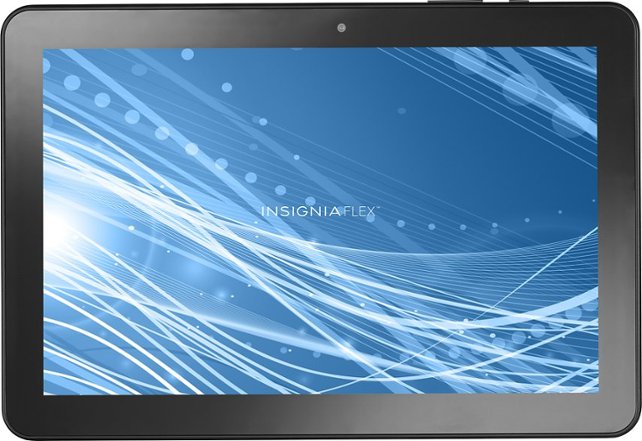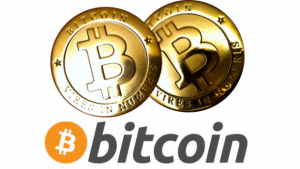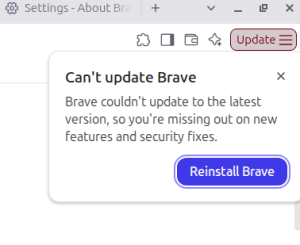Bitcoin Is Disruptive Because People Are Actually Using It
What makes a new technology disruptive? A new innovation can be more efficient, more useful, and have the capacity to make people’s lives easier and it means nothing if people don’t use it. That’s why the concept of a computing machine didn’t really catch on with the general public until the mid-20th century even though calculating machines that were more advanced than the abacus had popped up over the centuries. To genuinely be disruptive, a technology pretty much has to reach a wide audience.
Bitcoin is new, disruptive fintech in ways that previous digital currencies like E-gold never were because people actually use Bitcoin. Paypal may be more than a little jealous. Paypal co-founder Keith Rabois Tweeted that “We never accomplished our original vision with Paypal,” while launching Stellar. This implies that Paypal was originally meant to be an easy way to move money across international borders, but fell short due to technical issues and the risk of running afoul of international financial regulations. Essentially, cryptocurrencies can now do what Paypal never managed to accomplish.
Naturally, the four primary rules of doing anything that might trigger an investigation into whether a money transfer violates financial regulations are:
- Check first.
- Don’t get caught.
- Assume that the government is capable of watching every move you make.
3A: The best way to not get caught is to not do it.
3B: Remember to make funny faces at your webcam sometimes. Alternatively, pull a Homer Simpson and tape a picture of yourself to the webcam every once in a while.
3C: A tinfoil hat probably won’t help. Neither can a microwave take a picture of you. The problem is more likely to be on your Android tablet.
- If you absolutely must do it anyway, make sure you know a really good attorney.
Seriously, though, the existence of cryptocurrencies makes large financial institutions and government regulators nervous because it’s a way to move money that they can’t control. It can’t be destroyed in any way short of destroying the entire Internet and every single private network in existence. As the protagonist of Frank Herbert’s Dune noted, “The power to destroy a thing is the absolute control over it.” The financial sector can destroy your ability to use the money in a bank account by closing the account and seizing the money, but can’t truly destroy Bitcoin unless it has the audacity to declare war on the entire infrastructure of the World Wide Web. Which one does the centralized financial sector have control over?
Bitcoin Not The Only Option
It’s not that the mainstream financial industry and government regulators don’t occasionally take halfhearted swipes at Bitcoin that, granted, could hurt. The SEC recently refused to issue an ETF license for the Winklevoss Brothers’ Gemini exchange because the regulators say that Bitcoin “isn’t regulated enough.” This, of course, does not stop people from using Bitcoin. It just means that Americans can’t use the Gemini exchange to buy and sell Bitcoin. (Annoying, but LocalBitcoins is still an option. For now.)
One thing that cryptocurrency users could do is diversify the cryptocurrencies that they hold and use on a regular basis. If you have the choice between paying in Bitcoin, Litecoin and Dogecoin for a cup of coffee, Dogecoin is a good choice. There has to be some kind of correlation between fewer transactions per minute and a network that looks faster from the perspective of the end user. Anyway, Bitcoin seems increasingly designed for large transactions and may be better for ordering an attractive engagement ring than for buying a cup of coffee. (Before you freak out about the price of a diamond ring, it doesn’t have to be a diamond ring.) These other cryptocurrencies are usually referred to as altcoins – alternatives to Bitcoin.
Sure, there are scamcoins. Separate teams have attempted to reboot former scamcoins like Europecoin and Carboncoin after their original creators bailed with the profits, although the Europecoin team is the only one who is apparently still active. Lennart Lopin told me that he snagged Marscoin because he didn’t want it to be a “stupid, useless little cryptocurrency.” That doesn’t mean that users who are ready to dive off the deep end should be completely frightened off when it comes to altcoins. Just be sure to watch the newcomers for a while to see what they do and invest in the ones who seem intent on sticking around.
Lennart Lopin and Marscoin
The Bitcoin community may try to badmouth altcoins like DASH and make them out to be scamcoins. To be fair, Bitcoin is losing market value lately despite its recent surge in price. This may be partly due to recent, major disagreements between Bitcoin developers and miners about the future of Bitcoin that are likely to cause lingering bad feelings in the community.
Whatever the cause, many cryptocurrency insiders are recognizing the value of diversifying their holdings. They recognize that Bitcoin could tank and services like ShapeShift are demonstrating the value of their holdings does not necessarily have to be tied to the value of Bitcoin. What it amounts to is that altcoins could disrupt Bitcoin at the same time that Bitcoin is disrupting the financial sector.
Where Does The Blockchain Fit Into All This?
IBM is developing apps around the Blockchain, and when IBM notices a new computing-related technology, you know that there might actually be something to it. The Blockchain market is growing to the point where analysts say that it could be worth $7.74 billion annually by 2024. The financial industry thinks that 2017 will be a good year for Blockchain development and the Blockchain could go mainstream by 2020. So the mainstream financial sector might bash on Bitcoin, but at least this sector seems willing to poke at the Blockchain with a stick while it decides what to do with it.
The Blockchain’s primary disruptive power is that it could make important industries that need reliable real-time record keeping more efficient. Bitcoin has already demonstrated its ability to seamlessly cross international borders and banks want to take advantage of the technology that makes that possible so that they can finally replace outdated legacy systems that were never designed for a true global economy. This is not necessarily a bad thing when it could provide jobs for Blockchain developers while they gain experience and maybe eventually start their own firms to provide Blockchain as a Service (BaaS) platforms. (I am not kidding here. Already existing BaaS systems include Acronis’ Blockchain-based notary system and Chained Finance’s Blockchain Supply Chain platform.)
The U.S. government is also beginning to take a look at the Blockchain, which may be understandable in light of scandals of the past few years, many of which involved emails in some way. The military wants to take advantage of it to make communication with civilian organizations more reliable. The Chamber of Digital Commerce is interested in exploring the possibility of using the Blockchain in the securities market. One of the benefits of this is that the government might be able to delete emails in somebody’s inbox, but won’t be able to delete that data off the Blockchain if they want the Blockchain to still be usable.
Like most disruptive advances in technology, Bitcoin and the Blockchain are likely to cause some short-term reshuffling. Because these things are getting used, the existence of cryptocurrencies and a new distributed ledger forces large mainstream organizations that might have done well using the old system to rethink the way they do business if they want to stay relevant. Some governments and banks might fight it on the grounds that they just don’t want to make the investment, but that won’t stop a Bitcoin payment from going from the U.S. to the Philippines, or from China to Peru. Despite complaints that Bitcoin mining is becoming too centralized, the nodes are still distributed enough that blocking all of them would be like playing Whack-a-Mole and shutting down the entire Bitcoin network would also require shutting down the entire World Wide Web. Besides, it would just take one functional node of one cryptocurrency for the technology to still exist – even if it is a stupid useless little cryptocurrency called Marscoin.
You Need A Good Tablet For Your Currencies.
Seriously, though, why isn’t Jaxx available for the Kindle yet?
More Android Tablets
[ebayfeedsforwordpress feed=”http://rest.ebay.com/epn/v1/find/item.rss?keyword=android+tablet&sortOrder=BestMatch&programid=1&campaignid=5337337555&toolid=10039&listingType1=All&lgeo=1&topRatedSeller=true&feedType=rss” items=”15″]












